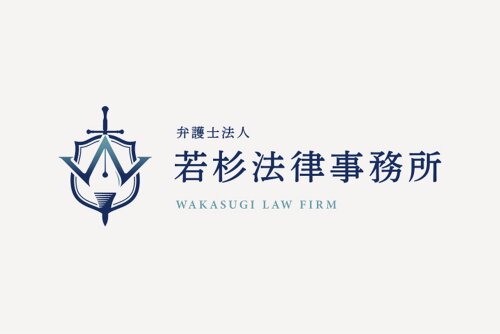Best Adoption Lawyers in Fukuoka
Share your needs with us, get contacted by law firms.
Free. Takes 2 min.
Free Guide to Hiring a Family Lawyer
List of the best lawyers in Fukuoka, Japan
About Adoption Law in Fukuoka, Japan
Adoption in Fukuoka, Japan is governed by national Japanese law and is facilitated by local Family Courts. Adoption is a legal process by which a person or couple becomes the lawful parent of a child who is not biologically theirs. This process establishes a permanent parent-child relationship, with all the rights and responsibilities that apply to biological parenthood. There are two primary types of adoption in Japan: regular (ordinary) adoption and special adoption, each serving different purposes and having specific requirements. Local municipalities, including Fukuoka, follow these national procedures while ensuring local compliance and proper documentation.
Why You May Need a Lawyer
Seeking legal advice or representation during the adoption process can be crucial for several reasons. The adoption procedure involves strict compliance with Japanese law, thorough documentation, and sometimes complicated family or international situations. You may need a lawyer if:
- You are unfamiliar with the Japanese legal system or language.
- You are a non-Japanese citizen or part of an international couple wishing to adopt in Fukuoka.
- There are complexities such as parental consent, unknown parentage, or disputes about custody.
- You are considering a special adoption, which has stricter requirements than ordinary adoption.
- You want to ensure the adoption is recognized both in Japan and internationally.
- You need assistance preparing and submitting documents to the Family Court.
Local Laws Overview
Adoption procedures in Fukuoka are subject to the Civil Code of Japan and are processed through the Family Court of Fukuoka Prefecture. The two main forms of adoption are:
- Ordinary Adoption: Creates a legal child-parent relationship, but does not sever the original family ties completely. Consent from the child's biological parents is required.
- Special Adoption: Usually for children under 15, this type permanently severs ties with biological parents and is designed to protect the best interests of the child. It is commonly chosen when the child cannot be raised by their birth parents.
Key requirements include consent from relevant parties, proof that adoption serves the welfare of the child, and review and approval by the Family Court. Additional documentation and oversight are required if the adoption involves international elements or if the adoptee is older than 15 years. The local government office and Family Court in Fukuoka help facilitate these steps, ensuring legal compliance and protection for all parties involved.
Frequently Asked Questions
What types of adoption are available in Fukuoka?
The two main types are ordinary adoption, which maintains some legal connection with the biological family, and special adoption, which is designed mainly for infants and young children and completely severs legal ties with biological parents.
Do I need to be a Japanese citizen to adopt in Fukuoka?
Non-Japanese citizens can adopt in Fukuoka, but additional procedures and documentation may be required, especially for international adoptions. Consultation with a lawyer familiar with international family law is recommended.
How long does the adoption process take?
The process varies depending on individual circumstances but typically takes several months. Special adoptions may take longer due to the careful court review required.
What is the role of the Family Court in adoption?
The Family Court reviews adoption applications, verifies the consent of all parties, investigates the child's welfare, and ultimately approves or denies the adoption.
What documents are required for adoption?
You will need birth certificates, family registries (koseki tohon), proof of identity, statements of consent from biological parents, and other supporting legal documents. The Family Court may require additional materials depending on the case.
Do both biological parents need to consent to the adoption?
Yes, unless a parent’s rights have been terminated or there are exceptional circumstances as recognized by the court.
Can same-sex couples adopt in Fukuoka?
Japanese law currently does not explicitly permit joint adoption by same-sex couples. However, one partner may be able to adopt individually depending on the circumstance.
Is financial support available for adoptive families?
Adoptive families may be eligible for certain child welfare benefits or subsidies, depending on their financial situation and the needs of the child. Check with your local government office for details.
Are post-adoption services available?
Yes, support services such as counseling and parenting workshops are available through local governments or child guidance centers.
Do I need to register the adoption after court approval?
Yes, after approval by the Family Court, you must register the adoption at your local municipal office. This legal registration finalizes the adoption and updates the family registry.
Additional Resources
- Fukuoka Family Court - For processing and inquiries related to adoption procedures.
- Fukuoka City Office Child and Family Guidance Section - Provides information, consultations, and social services related to adoption.
- Japanese Ministry of Health, Labour and Welfare - Offers guidelines on nationwide adoption procedures and child welfare.
- Local bar associations - For referrals to experienced family law attorneys.
- Adoption support nonprofits - Offer counseling, support groups, and connections to adoptive families.
Next Steps
If you are considering adoption in Fukuoka, start by gathering basic information about your eligibility and the child's situation. Contact the Fukuoka Family Court and your local municipal office for official documentation requirements. For guidance through the complex legal process or if your situation involves international or complicated family circumstances, consult with a qualified family law attorney. Lawyers can help you understand your rights, prepare documents, and represent your interests before the court. Take advantage of support services offered by the community and nonprofit organizations for additional assistance during and after the adoption process.
Lawzana helps you find the best lawyers and law firms in Fukuoka through a curated and pre-screened list of qualified legal professionals. Our platform offers rankings and detailed profiles of attorneys and law firms, allowing you to compare based on practice areas, including Adoption, experience, and client feedback.
Each profile includes a description of the firm's areas of practice, client reviews, team members and partners, year of establishment, spoken languages, office locations, contact information, social media presence, and any published articles or resources. Most firms on our platform speak English and are experienced in both local and international legal matters.
Get a quote from top-rated law firms in Fukuoka, Japan — quickly, securely, and without unnecessary hassle.
Disclaimer:
The information provided on this page is for general informational purposes only and does not constitute legal advice. While we strive to ensure the accuracy and relevance of the content, legal information may change over time, and interpretations of the law can vary. You should always consult with a qualified legal professional for advice specific to your situation.
We disclaim all liability for actions taken or not taken based on the content of this page. If you believe any information is incorrect or outdated, please contact us, and we will review and update it where appropriate.












